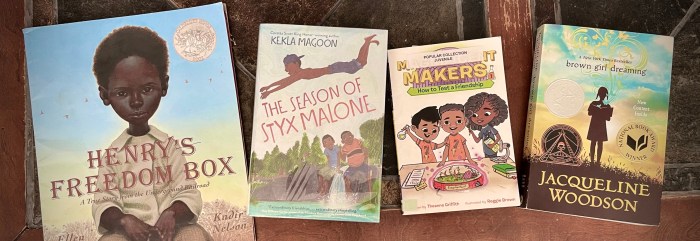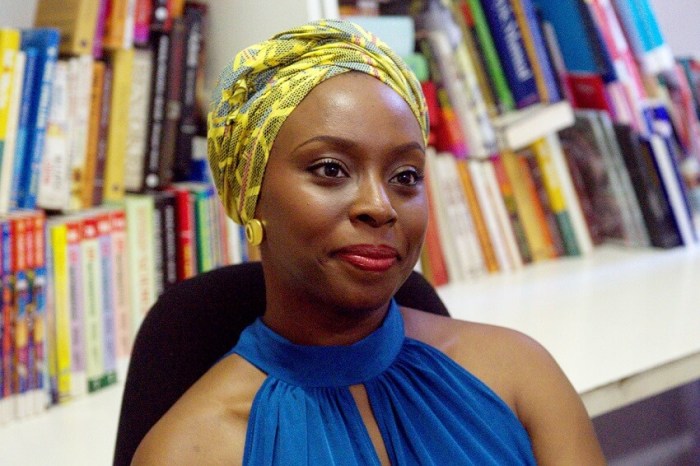My mother the crazy african by chimamanda ngozi adichie – Chimamanda Ngozi Adichie’s “My Mother the Crazy African” presents a captivating narrative that delves into the complexities of cultural identity, immigration, and mother-daughter relationships. This literary analysis explores the significance of the title, the multifaceted characters, and the profound themes that resonate throughout the story.
Adichie’s skillful use of symbolism and imagery creates a vivid and immersive experience for readers, enhancing the story’s emotional impact and inviting them to reflect on their own experiences with identity, culture, and family.
Literary Analysis of “My Mother the Crazy African”
In Chimamanda Ngozi Adichie’s “My Mother the Crazy African,” the title serves as a reflection of the complex and multifaceted nature of the narrator’s relationship with her mother. It highlights the tension between the narrator’s desire to embrace her mother’s African heritage and her own experiences growing up in America.
The story’s characters are meticulously crafted, each representing distinct perspectives on cultural identity and the challenges of immigration. The narrator, a young woman navigating her bicultural identity, grapples with her mother’s traditional African beliefs and her own Americanized upbringing.
Adichie employs vivid symbolism and imagery to convey the emotional depth and cultural complexities of the story. The “crazy” in the title symbolizes the narrator’s initial perception of her mother’s cultural differences, while the “African” represents her mother’s unwavering connection to her heritage.
Cultural Identity and Immigration: My Mother The Crazy African By Chimamanda Ngozi Adichie

The story delves into the complexities of cultural identity and the challenges faced by immigrants navigating multiple cultures. The narrator’s struggle to reconcile her American upbringing with her mother’s African values illustrates the complexities of bicultural identity.
Adichie portrays the challenges of navigating cultural differences, such as language barriers, differing social norms, and generational gaps. The story emphasizes the role of tradition, family, and community in shaping the narrator’s sense of self.
Mother-Daughter Relationships
The relationship between the narrator and her mother is central to the story. It is a complex and nuanced portrayal of love, conflict, and reconciliation within the mother-daughter dynamic.
Adichie explores the ways in which their relationship is shaped by cultural differences, generational gaps, and personal experiences. The narrator’s initial perception of her mother as “crazy” gradually evolves into a deeper understanding and appreciation of her mother’s strength and resilience.
Gender Roles and Stereotypes

The story challenges societal norms regarding gender roles and stereotypes. The narrator’s mother defies traditional gender expectations by being a strong, independent woman who challenges the patriarchal norms of her African society.
Adichie also examines the gender roles within the American society in which the narrator lives. The narrator’s experiences as a young woman of color highlight the intersectionality of race and gender and the challenges faced by women who do not conform to societal expectations.
Historical and Social Context

The story is set in the United States during a time of significant social and political change. The narrator’s experiences reflect the challenges faced by African immigrants during this period.
Adichie explores the impact of historical events and social norms on the characters and their experiences. The story highlights the ways in which racism and discrimination can shape the lives of immigrants and their families.
Questions and Answers
What is the significance of the title “My Mother the Crazy African”?
The title reflects the narrator’s initial perception of her mother as eccentric and different from other mothers. It also hints at the cultural and generational gap between them.
How does the story explore the challenges of navigating multiple cultures and identities?
The narrator struggles to reconcile her American upbringing with her Nigerian heritage, leading to feelings of displacement and confusion. Adichie portrays the complexities of living in a multicultural society.
What is the nature of the relationship between the narrator and her mother?
Their relationship is complex and evolving, marked by love, conflict, and reconciliation. Adichie explores the challenges and rewards of mother-daughter relationships, particularly in the context of cultural differences.